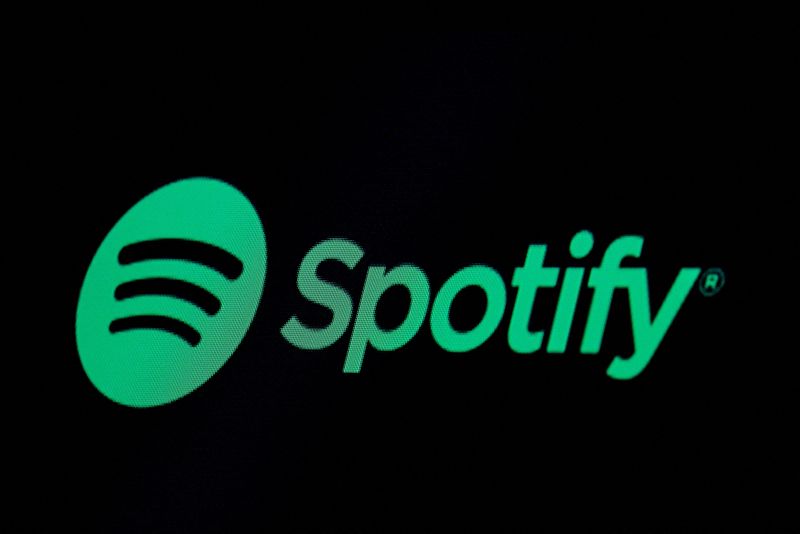By Dawn Chmielewski and Supantha Mukherjee
LOS ANGELES/STOCKHOLM (Reuters) - Spotify Technology SA (NYSE:SPOT)'s Car Thing player is now a thing of the past.
The world's leading audio streaming service on Wednesday announced it would discontinue the device just five months after it became available to all users in the United States. In doing so, Spotify became the latest software technology company to stumble in an attempt to build hardware.
Spotify wrote down a $31 million investment in the device, which was aimed at increasing the number of users who listen to music or podcasts while in the car. However, the company said it was unable to sell enough devices at a sufficiently high price to justify the investment.
"We just can't get it to an attractive economical profile," Spotify CEO Daniel Ek told Reuters. "So we decided to terminate this program in light of that."
Car Thing was a next-generation stereo designed to stream Spotify's music and podcasts from the user's phone through the car audio system. After unveiling trials in May 2019, Spotify tested the device with a small group of people in April 2021, and then brought it to wider release in February this year.
Spotify was not the first software company to seek to extend its relationship with users into the physical world through devices.
Alphabet (NASDAQ:GOOGL) Inc's Google was one of the early software companies to venture into hardware experiments with some major failures, including Google Glass - a wearable Android device resembling eyeglasses, which displayed information in the user's field of vision.
Snap Inc (NYSE:SNAP) shelved its original Spectacles, $130 sunglasses that transmitted video directly to the SnapChat app, back in 2017. It announced a new type of Spectacles last year, featuring augmented reality.
Meta Platforms Inc's Facebook (NASDAQ:META) plans to stop producing a consumer version of a videoconferencing device dubbed Portal, instead focusing on the business market. It also disappointed people with its phone that came out in 2013 in partnership with HTC. It launched to mixed reviews, with critics raising privacy concerns.
IDC research vice president Frank Gillett said he could not recall any content company making a successful transition to hardware.
By contrast, a hardware maker like Apple Inc (NASDAQ:AAPL) was able to launch music and video services by building on its operating system and existing device relationship with consumers.
"When they created the iPod, they had people in the ecosystem," said Gillett, adding that launching a device without such an infrastructure "is extremely challenging."
While Spotify rules the music streaming niche, building a device for the car put it in a competitive arena with the likes of Apple CarPlay and Android Auto - both of which have the support of their own ecosystems of billions of devices.
Spotify said its device was not designed to challenge these entertainment systems, but rather to provide an easier way for its users - especially those with older model cars - to listen to music or podcasts.
However, Car Thing lacked the features of the other infotainment devices, from navigation to making calls, making it harder to justify the need for a device just for music. It also required free listeners to upgrade to premium subscription.
Spotify CFO Paul Vogel told investors on Wednesday in addition to pricing challenges, inflation drove up component costs and a chip shortage made it harder to obtain parts.

Veteran consumer electronics analyst Tim Bajarin of Creative Strategies said consumers are reluctant to add devices to their cars when 98% of new cars in the United States come with Apple's CarPlay already installed.
"I remember thinking: 'This is dead in the water,'" said Bajarin.